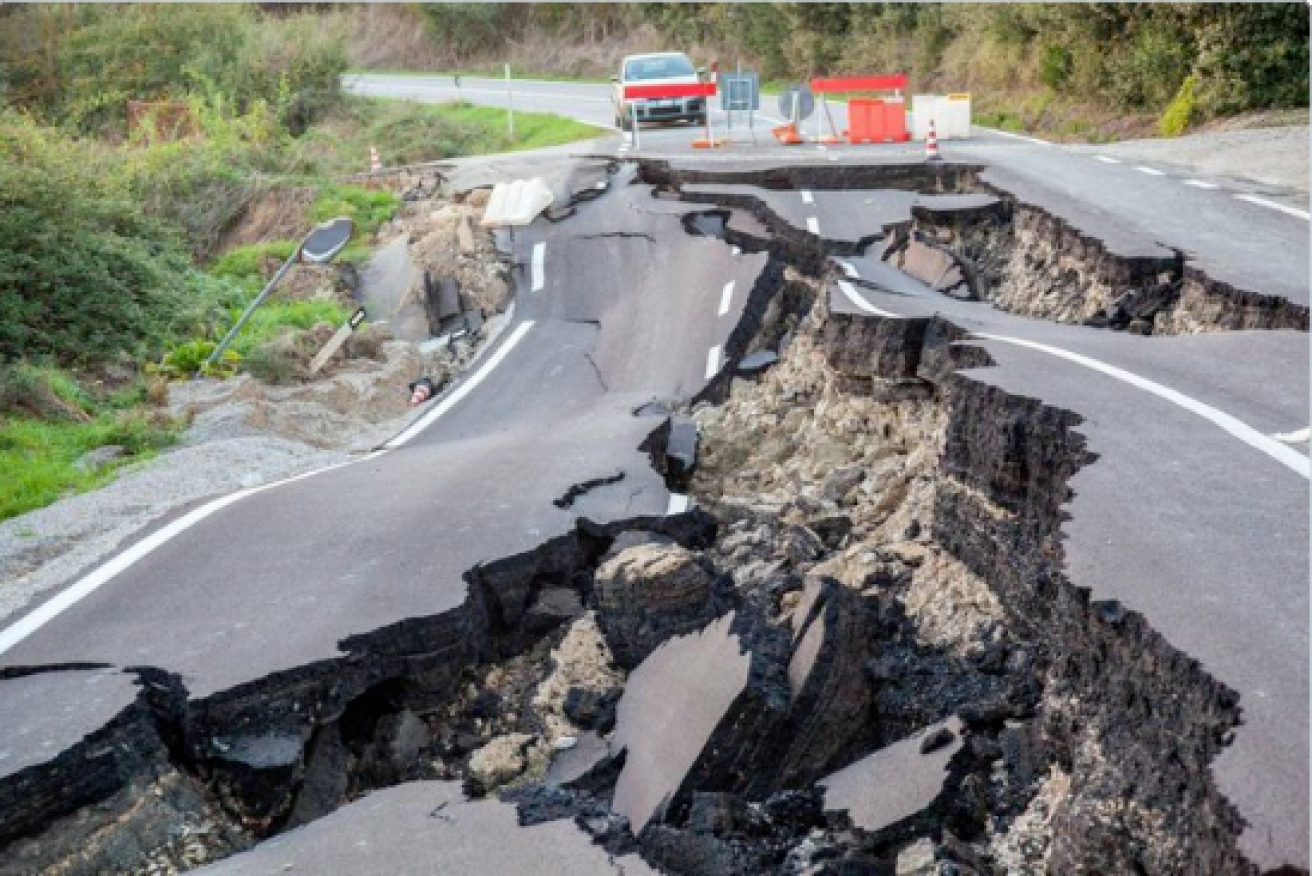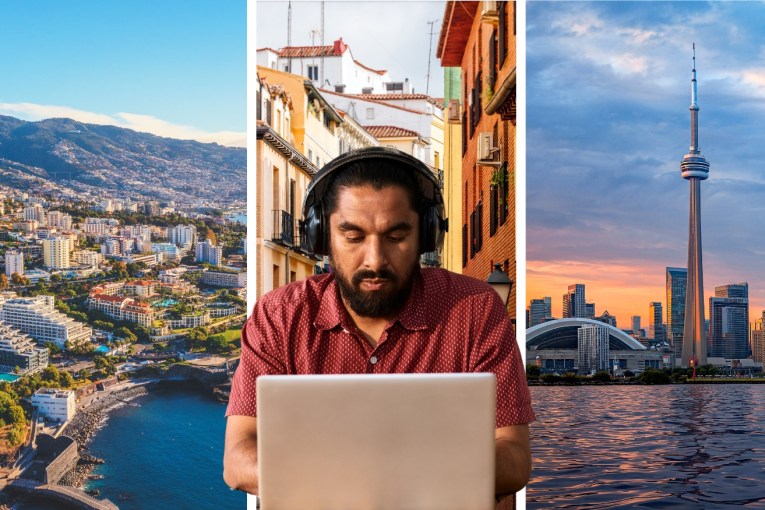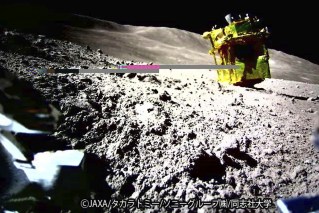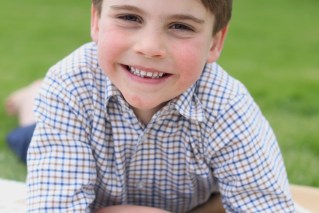Kia Kaha New Zealand – Be Strong. Again

Gone in jolt. Photo: Twitter
Once again, New Zealanders have been shaken from their beds in the early hours of the morning. This time, it’s big. A magnitude 7.5. And felt across the country.
It’s supposed to be a certainty of life: the ground doesn’t move. Yes sometimes it gets washed away, or scorched, or developed.
It’s not supposed to cough. Even if you know you live on a fault line, those tectonic plates are far, far below you, out of sight. But in many parts of New Zealand, they are never out of mind.
https://twitter.com/leota03/status/797923777849868288
Next February it will be six years since the second major Christchurch earthquake, the one that claimed 185 lives.
The quakes changed the landscape, and they’ve changed the language. Black humour rules, and it’s a competitive guessing game to pinpoint the magnitude of the aftershocks.
People have GNS Science, the earthquake experts, on tap; Civil Defence on their Twitter and Facebook feeds; a torch and battery–powered radio under the bed; bottled water in the garage and the TV bracketed to the wall.
If they could, they’d have their psychiatrist on speed dial, but there are not enough professionals to go around.
While outwardly resigned to the perpetual aftershocks, they have taken a heavy, and often invisible, toll. And just when Christchurch dares to hope that things are returning to normal – this happens.
I need to shower but I'm scared of an earthquake when I'm naked and vulnerable lol #NZEarthquake #EQNZ #MotherNature
— … (@user7890123654) November 14, 2016
Earthquakes hit children in ways we haven’t really been able to measure yet. A whole generation of Canterbury college students has now been educated in between shakes. Their schools have been moved, closed, merged, destroyed; their exams interrupted.
On Monday, NCEA scholarship exams were cancelled, and because hundreds of schools were closed until they could be checked for structural damage, thousands of children were unable to sit other major exams. Hopefully their future employers will see resilience, not failure.
I'm seeing a lot about how to comfort small children after an earthquake. Honestly? He's comforting me. <3 #eqnz
— Jax Goss (@belgatherial) November 14, 2016
When the first massive shock hit Christchurch in September 2010, the one that took everyone by surprise, I was the national news director for NewstalkZB, New Zealand’s big commercial talkback radio station.
Our Christchurch office was destroyed. It was the middle of the night so thankfully my colleagues weren’t inside.
Chief reporter Jo Scott’s house was badly damaged, her two little girls terrified. But she came to work.
We routed the station through Auckland and took calls non-stop while her team did a heroic job operating with little more than their cell phones. They set up in a motel. With electricity out everywhere, for days a battery-powered radio was all many residents were clinging to.
It got worse. The next February, Jo was driving home from her early morning shift when another massive tremor hit. She headed straight for her children’s school, phoning in the news at the same time. The CTV building collapsed, taking the biggest toll on life, including two of Jo’s journalism students.

A landslide covers a section of the highway near Kaikoura after the powerful earthquake. Photo: AP
For years Jo and her team worked through situations your average office-bound reporter couldn’t imagine. It was more like a war zone. Liquefaction, where the ground just turns to mush, ate up whole suburbs.
A trip to cover a court case involved finding out where court was being held (the court house was destroyed along with the rest of the central city), which roads were open on the way and allowing three times the normal trip time to get there.
To a certain extent, that is still happening. The city is not back to normal. Parts of this formerly perfectly manicured city, the Garden City, are wastelands. It’s incomprehensible unless you’ve seen it. One of the hardest parts is hearing from outsiders that they’re “sick of the earthquake” always being in the news.
Our whole news team in Christchurch turned over twice. Reporters left the city or left the job, or both. Being an earthquake survivor, and reporting on it too, takes an emotional bite out of you. Jo is now running a group called All Right?, which deals with stressed residents.
She tells me: “I’m terrified. My first thought was, I don’t think I can go through this again, and more importantly, I don’t think I can put my daughters through it again.”
I have so many chores to do and words to write but I've spent the entire day watching movies with my girls. Don't regret a minute. #eqnz
— Rachael Craw (@RachaelCraw) November 14, 2016
This time she wasn’t close to the epicentre and hasn’t been hit by many aftershocks – something that makes her feel thankful and guilty at the same time.
“Words can’t really describe what it is like to experience these major shakes and aftershocks. It is like being on a boat that you’re worried is going to sink and not being able to get off.
“You sweat, feel ill and just worry that you’re about to die.”
In Wellington, which appears to have been the worst hit main centre in the latest quake, other former colleagues are also ploughing on regardless – some of them in buildings marked as risky in a city-wide earthquake safety blitz that came after the Christchurch events.
One gallery reporter posted on Facebook that he’d had to turn up to a reception for the Hungarian President in jeans and a t-shirt, which he’d flung on at 1am to cover the quake.
When I hand over after my early morning shift to my colleagues in Australia, ex-Christchurch resident Mike Bruce takes over from me.
On Monday I signed off with the words “kia kaha”, thinking of his family still living at the heart of the rumbling action, and how hard it is to be far away from home at such times.
But Christchurch residents are sick of being told to stay strong. They just want the shaking to stop.
Today = anxiety on point. After three hours sleep last night, I'm back in my room trying to nap #eqnz
— Indie (@IndieBNZ) November 14, 2016
Kia Kaha New Zealand. Thinking of our friends & colleagues in #Christchurch & surrounds #eqnz https://t.co/ycfQ5zshfn
— Australia EMS (@AustraliaEMS) November 13, 2016
Alexia Russell is The New Daily‘s overnight editor, working from New Zealand. For 20 years she was the National News Director at radio station NewstalkZB – and, like every reporter in the country, has dropped everything on occasion to come in to work and cover another rumble. She’s relatively safe from swaying in Auckland, but no one in New Zealand is untouched by earthquakes.








